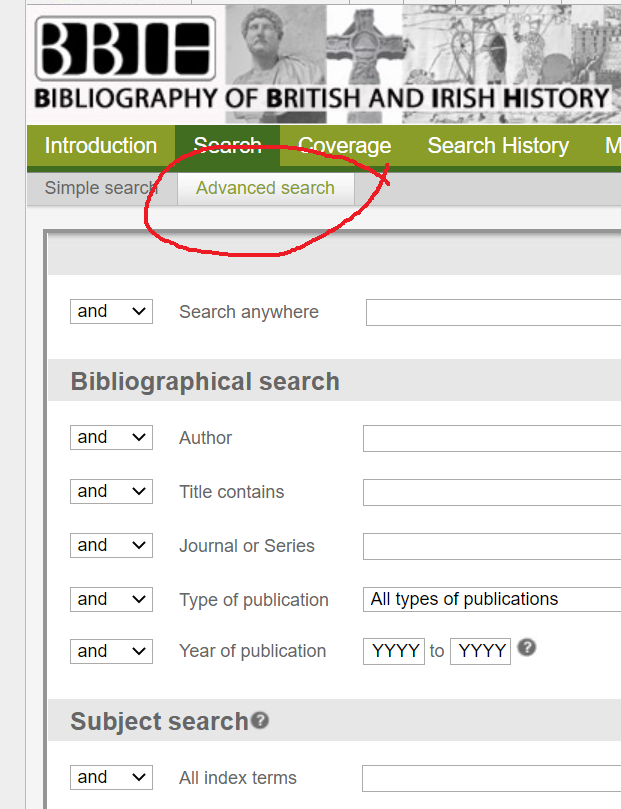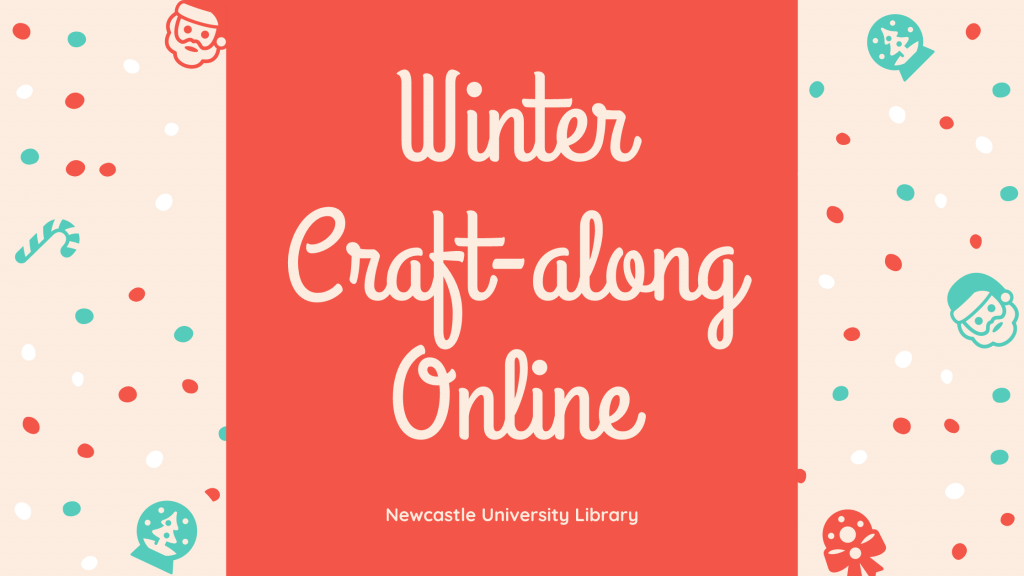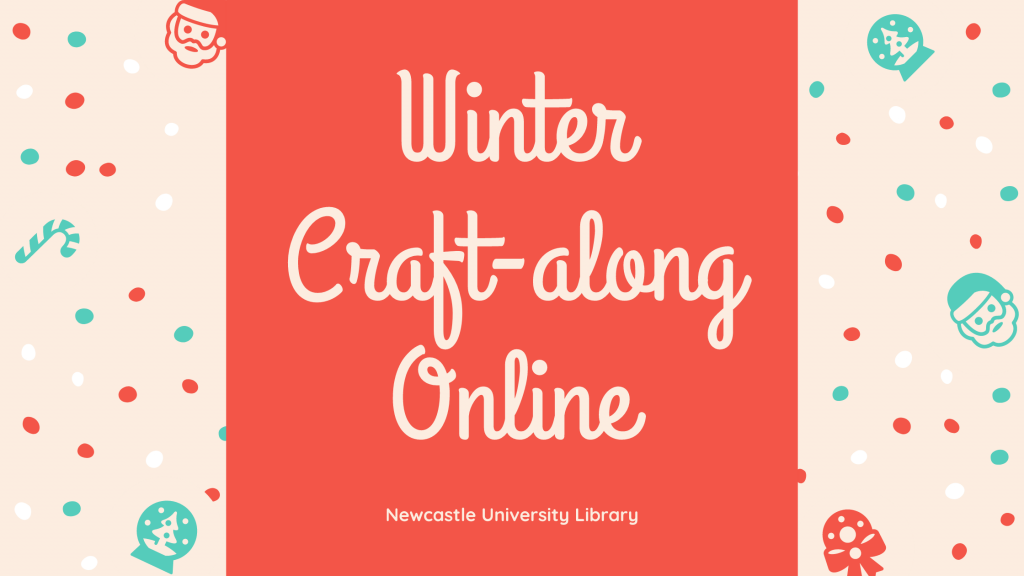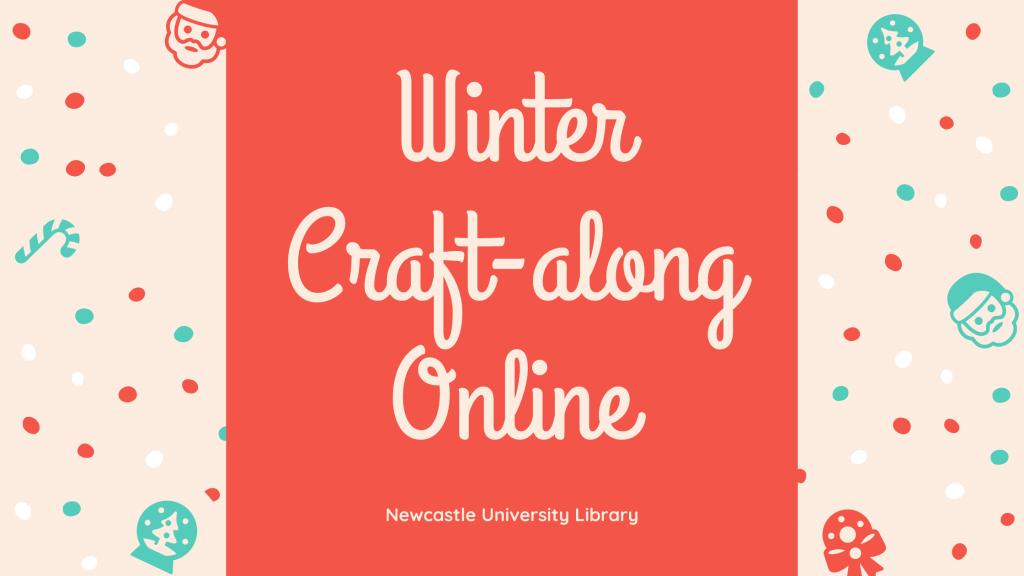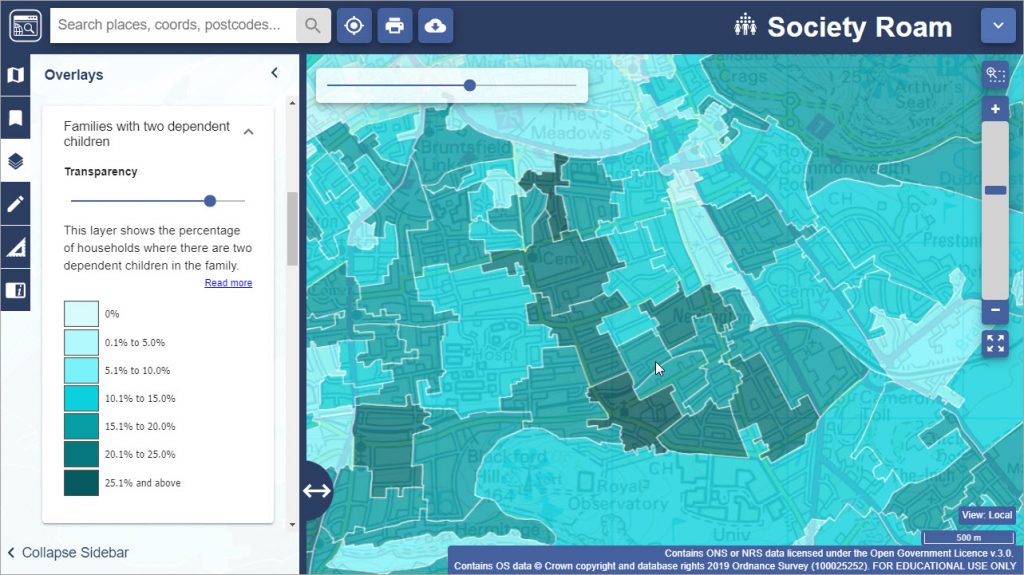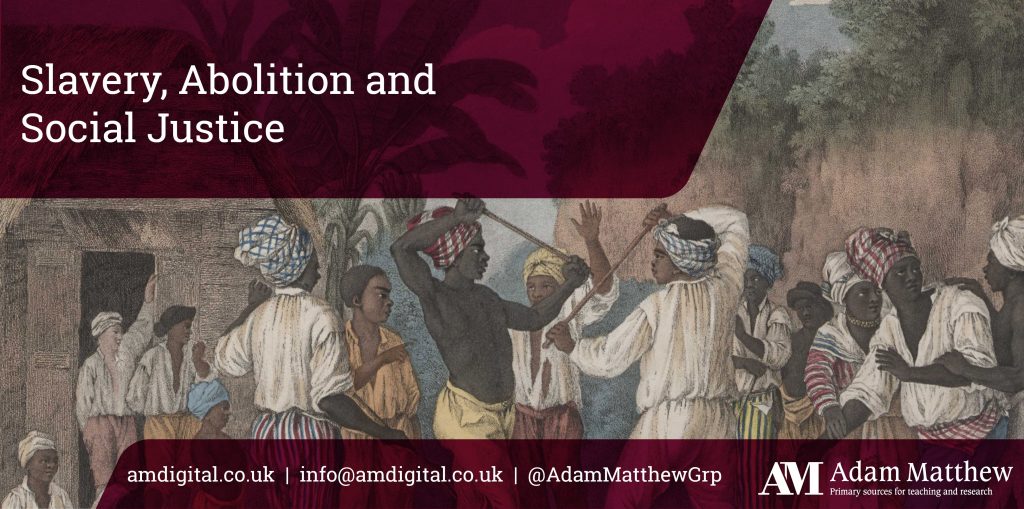
Slavery, Abolition and Social Justice brings together a huge range of primary source materials relating to slavery and abolition studies from across the world, covering the time period between 1490 and 2007.
Primary source content
The content includes thousands of digitised sources, including images, maps, manuscripts, registers, ships’ logs and court records. It is arranged into sixteen broad themes, including Slavery in the Early Americas; Resistance and Revolt; Slave Testimony, and Urban and Domestic Slavery. Contemporary sources include materials from Anti-Slavery International, and submissions to the UNCHR.
Getting started
If you’re using Slavery, Abolition and Social Justice for the first time, we’d strongly encourage you to click on Introduction and take a little time to read about the content and themes, so you can get the best out of it: it is an extensive resource.
You can browse or search the content in various ways: we’d recommend choosing Documents from the top menu, as you can then browse by theme, geographic region, document type, date or more.

You may also find it useful to click REGISTER, so you can personalise your searching experience, including saving searches, documents and creating your own image slideshows.
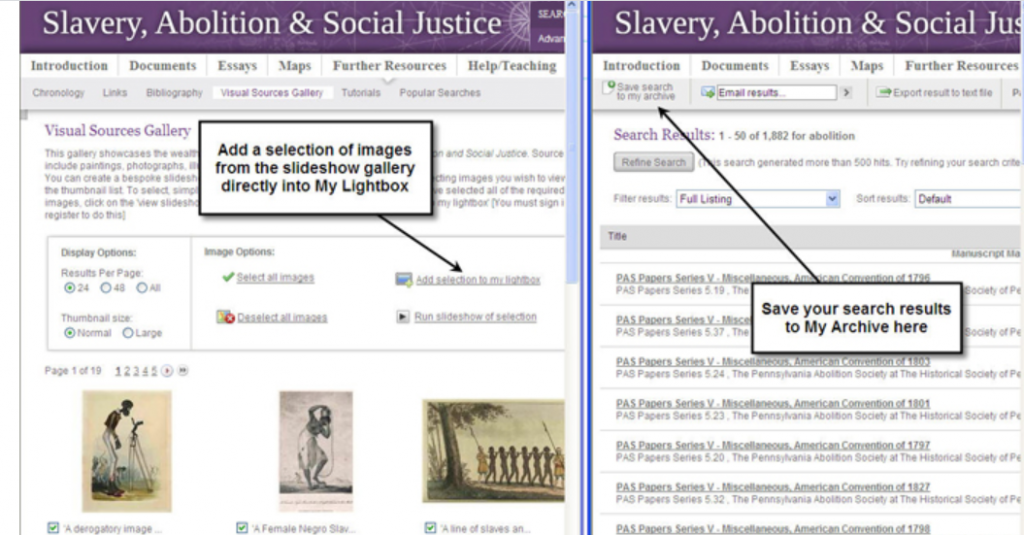
Help and context
The primary sources are complemented by essays, tutorials and timelines to help you interpret the content: click on Further Resources from the top menu.
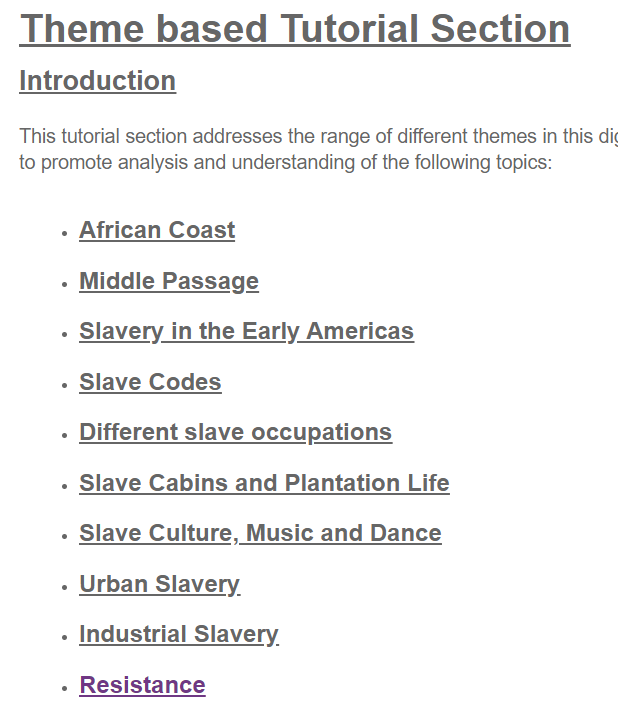
Have you used Slavery, Abolition and Social Justice? Please feel free to post your comments and tips by clicking Leave a comment below.


